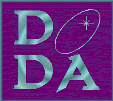You are here
Meeting Organizer Handbook: Figuring Costs
DDA meetings should pay for themselves. Meeting participants expect to pay a registration fee and, those attending the banquet, a banquet fee. These are generally the only sources of revenue. Costs can be highly variable from one meeting to the next, and it really is difficult to know the final cost until the meeting actually takes place. But some sort of estimate must be made, taking into account the predictable and not-so-predictable factors, so that the registration and banquet fee will cover the final cost. To help with making this estimate, the table below lists some expenses and revenue sources that have been encountered in past meetings. A worksheet for computing registration fees is available for your reference.
Sources and Sinks for DDA Meetings
| Expenses | Revenue |
|---|---|
| Coffee and snacks | Registration fees |
| Meeting room rental | Rental waived if enough members stay in meeting hotel |
| Rental of A/V equiptment | A/V may be provide gratis if meeting held at university |
| Supplies | |
| Mailings to announce meeting | Can reduce costs substantially by using email |
| Reception(s) | Cash bar |
| Banquet | Cash bar and banquet fees |
| Fees waived for guests | |
| Honorarium for banquet speaker | Grants from meeting sponsors |
| Display boards for posters |
Economizing
It is often possible to find a facility that doesn't charge for the use of its meeting rooms. Hotels may not charge if attendees stay there. Universities usually provide a lecture hall at no cost.
Many meeting locations will provide A/V equipment as a matter of course, but things can get expensive fast if something special is needed (e.g., a DVD or movie projector.)
Holding a meeting over a weekend may reduce airfares — one of the reasons AAS and DDA meetings usually start on Sundays.
One place not to cut corners is coffee breaks. Refreshments during the meeting should be fresh, good, abundant, and available on schedule.
